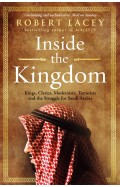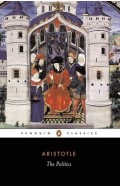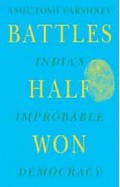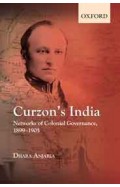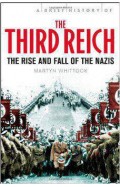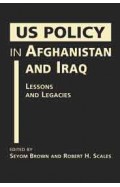The Great Experiment - How to Make Diverse Democracies Work
By: Yascha Mounk
-
Rs 2,076.75
- Rs 3,195.00
- 35%
You save Rs 1,118.25.
Due to constant currency fluctuation, prices are subject to change with or without notice.
'Anyone interested in the future of liberal democracy should read this book'
ANNE APPLEBAUM
----------
One of our most important political thinkers looks to the greatest challenge of our time: how to live together equally and peacefully in diverse democracies.
It's easy to be pessimistic about the fate of democracy in multi-ethnic societies. At the end of the Second World War, fewer than one in twenty-five people living in the UK were born abroad; now it is one in seven. The history of humankind is a story of us versus them, and the project of diverse democracies is a relatively new one - it is, in other words, a great experiment.
How do identity groups with different ideologies and beliefs live together? Is it possible to embark on a democracy with shared values if our values are at odds?
Yascha Mounk argues that group identity is both deeply rooted and malleable. No community is beyond conciliation: groups are moving towards cooperation across the world. The Great Experiment offers a profound understanding of the problem behind all our other problems, and genuine hope for our capacity to solve it.
'Anyone interested in the future of liberal democracy should read this book'
ANNE APPLEBAUM
----------
One of our most important political thinkers looks to the greatest challenge of our time: how to live together equally and peacefully in diverse democracies.
It's easy to be pessimistic about the fate of democracy in multi-ethnic societies. At the end of the Second World War, fewer than one in twenty-five people living in the UK were born abroad; now it is one in seven. The history of humankind is a story of us versus them, and the project of diverse democracies is a relatively new one - it is, in other words, a great experiment.
How do identity groups with different ideologies and beliefs live together? Is it possible to embark on a democracy with shared values if our values are at odds?
Yascha Mounk argues that group identity is both deeply rooted and malleable. No community is beyond conciliation: groups are moving towards cooperation across the world. The Great Experiment offers a profound understanding of the problem behind all our other problems, and genuine hope for our capacity to solve it.
The Great Experiment: How to Make Diverse Democracies Work
By: Yascha Mounk
Rs 2,271.75 Rs 3,495.00 Ex Tax :Rs 2,271.75
The Great Experiment - How to Make Diverse Democracies Work
By: Yascha Mounk
Rs 2,076.75 Rs 3,195.00 Ex Tax :Rs 2,076.75
Zubin Mehta: A Musical Journey (An Authorized Biography)
By: VOID - Bakhtiar K. Dadabhoy
Rs 472.50 Rs 1,050.00 Ex Tax :Rs 472.50
The Origins of Political Order From Prehuman Times to the French RevolutioN
By: Francis Fukuyama
Rs 3,116.00 Rs 3,895.00 Ex Tax :Rs 3,116.00
Battles Half Won : Indias Improbable Democracy
By: Ashutosh Varshney
Rs 2,726.75 Rs 4,195.00 Ex Tax :Rs 2,726.75
Curzon's India: Networks of Colonial Governance, 1899-1905
By: Dhara Anjaria
Rs 796.00 Rs 995.00 Ex Tax :Rs 796.00
A Brief History of The Third Reich: The Rise and Fall of the Nazis - Paperback
By: Martyn Whittock
Rs 1,795.50 Rs 1,995.00 Ex Tax :Rs 1,795.50
US Policy in Afghanistan and Iraq
By: Seyom Brown & Robert H. Scales
Rs 2,236.00 Rs 2,795.00 Ex Tax :Rs 2,236.00
The Peacemakers: India and the Quest for One World
By: Manu Bhagwan
Rs 552.50 Rs 850.00 Ex Tax :Rs 552.50
No similar books from this author available at the moment.
No recently viewed books available at the moment.
Zubin Mehta: A Musical Journey (An Authorized Biography)
By: VOID - Bakhtiar K. Dadabhoy
Rs 472.50 Rs 1,050.00 Ex Tax :Rs 472.50
The Great Experiment: How to Make Diverse Democracies Work
By: Yascha Mounk
Rs 2,271.75 Rs 3,495.00 Ex Tax :Rs 2,271.75
The Great Experiment - How to Make Diverse Democracies Work
By: Yascha Mounk
Rs 2,076.75 Rs 3,195.00 Ex Tax :Rs 2,076.75











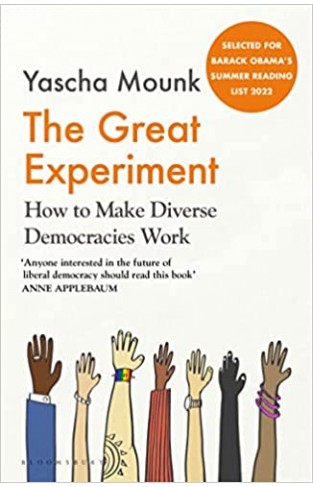
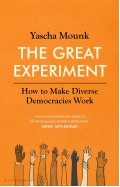
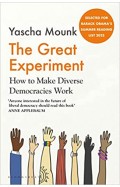
-120x187.jpg?q6)





-120x187.jpg?q6)
